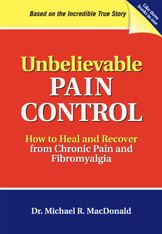
THE MAN
I still remember a woman I worked with many years ago.
She was originally from Serbia, but had been living in Canada for over 10 years. She could only speak broken English. That was good enough for us to work together. She needed a lot of help with chronic physical pain and losses, caused by her car accident.
Part of my work with her involved helping her to understand and cope with the many rules and regulations of the car insurance system. This system is confusing and overwhelming, even for well-educated English speakers.
It is especially confusing when individuals are hurt in accidents and cannot work, yet are denied treatments and cut-off income replacement benefits.
This was was what my patient was struggling to understand. I encouraged her to bring in all of the letters she received from her insurance adjuster, so we could try and sort out the reasons for these denials.
I had to laugh, though, because she kept saying that “the man did this” and “why was the man doing this to her and her family”. I pictured an aging leftist hippie, at a protest rally from the sixties, railing against The Man, as the cause of all evils in society.
After apologizing for my laughter, I kept telling her that her adjuster was a woman. To her, though, it was the man doing this. And, in a way, she was right – more right than she realized.
It has often seemed to me, after working with car and work accident victims for the past 30 years, that it isn’t always the individual adjuster or case worker that is to blame for cut-off benefits. Sometimes, the adjuster wants to help, but is powerless to make the decisions necessary to allow benefits to be paid. All the power was kept by higher management.
I remember from years ago, that one of my patients was an insurance adjuster who had been hurt in a car accident. She, too had been denied benefits from the very company she worked for. She described her adjusting job as one of having a lot of power to say no, but very little power to say yes. Any decisions she made, that required the company to pay out any money, were closely monitored by management. Even, her claims manager had little power to say yes, because her job would be at risk with any increase in expenses. I got the impression that it worked like this all of the way up the corporate ladder.
I am not a lawyer or insurance executive, but it seems to me that my patient was right. The power to help or hurt comes from high up in the insurance corporate culture.
It’s the Man, man.
* * *
Thank you for reading. Thank you to Ben White (photo above) and Rachel Walker (image below), both from Unsplash, for your creative work. And, please feel free to steal, share or join our growing list of subscribers.
Mike




